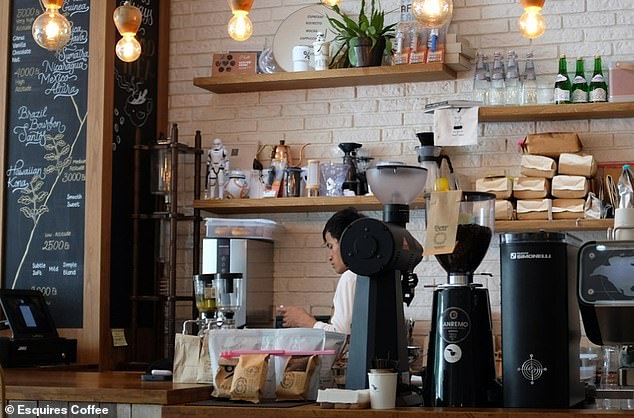When it comes to coffee shops across the UK, Brits are spoiled for choice thanks to the plethora of chains and independent establishments serving up a much-needed caffeine fix.
While companies such as Starbucks, Costa and Pret have multiple stores across the country, there is one chain that may be relatively unknown to Brits despite having been in business for 25 years.
This is because the brand in question prefers to target suburban locations as a way to continually attract a loyal set of customers.
With locations in cities including Aylesbury, Caerphilly, Corby, Guildford and Windsor, Esquires also has some stores in London, Cardiff and Dublin.
According to the company, it is able to differentiate itself from its competitors by “combining an independent coffee culture with the consistency and support of a franchise.”
However, online reviews of the chain on Tripadvisor are inconsistent, and scores fluctuate depending on the cafe’s location.
For example, the branch in Twickenham, south-west London, scored four out of five stars, with people praising its “amazing service” and “delicious food”.
However, a nearby establishment in Esher, Surrey, currently has a rating of 2.5 out of five, with visitors saying it is “dirty”, “disorganized” and has “poor service”.
With locations in cities including Aylesbury, Caerphilly, Corby, Guildford and Windsor, Esquires also has some stores in London, Cardiff and Dublin.
Reviews were somewhat more positive on Facebook: 72 percent of reviewers said they would recommend the coffee chain.
Users add that it was a ‘nice’ and ‘friendly’ business with a ‘very homely atmosphere’.
Aiden Keegan, UK chief executive of Esquires, said: “We see the brand as having really strong potential to reach more communities.
‘We’re not going to go to the high street, we’re not going to go to the high street, you’ll never see us on Oxford Street. We don’t particularly want to be in central business districts or urban centers.
‘We’re happiest in the suburbs, where people working from home want to go to a cafe to work (we see a lot of people in our shops with headphones on their laptops) or to take a break or catch up with friends. This means we get higher spend and longer dwell time than in more central locations.”
This comes after many cafe owners shared how they are waging war on laptop hoarders who try to take advantage of free Wi-Fi by ordering just a bottle of water or a particular hot drink.
In an attempt to address this practice and deter the WFH crowd, many have adopted tough new measures: refusing to offer free WiFi, limiting the hours laptops can be used, and even banning them entirely.
In a busy shopping area like Finchley Road in north London, cafe owner Eric says he is losing money for every seat occupied by a laptop user rather than a paying customer.

According to the company, it is able to differentiate itself from its competitors by “combining the culture of independent coffee with the consistency and support of a franchise.”

In many cafes, customers occupy precious seats that are there to concentrate on their Zoom meetings and spreadsheets rather than enjoying coffee and pastries (stock image)
Speaking at his shop, Local Coffee & Grocery in West Hampstead, a cozy place that also doubles as an organic food store, he said the problem got so bad and the cost so high that they stopped offering Wi-Fi to customers altogether. .
Eric said: ‘We had to set boundaries. Normally, when people see that there is no Wi-Fi, they change their mind and leave.
‘Before we had problems with people who would sit and use the Wi-Fi without even asking for anything.
‘Small businesses like us, we have to pay the rent, the rates, everything. I have calculated that each seat costs us £5 an hour. A coffee doesn’t cover that.’
“Sometimes they don’t even buy coffee, they buy something like a bottle of water in the shop that costs £1 or £1.50 and they want to sit here.”

